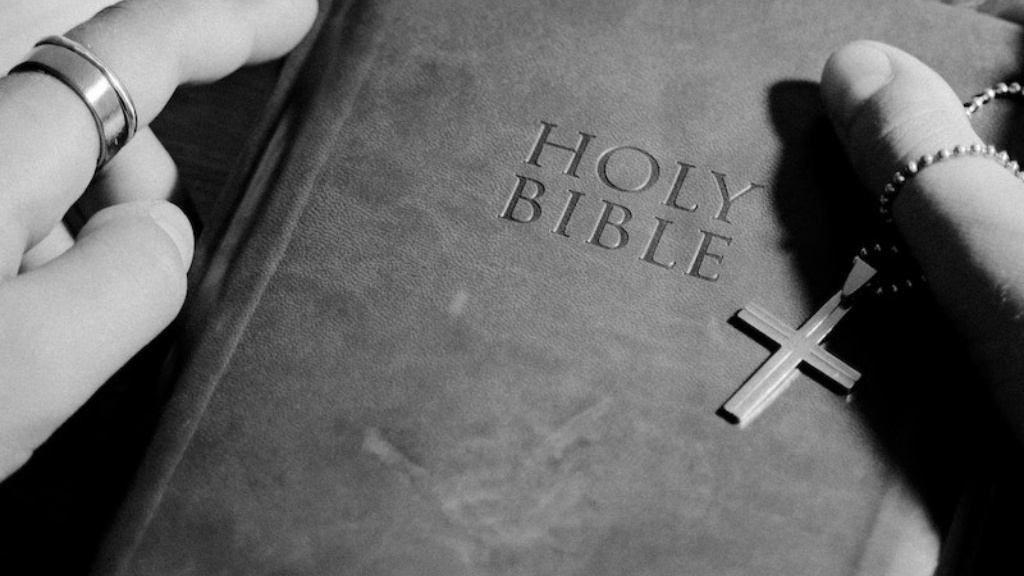In Christianity, a schism is a break in or possibly separation of unity within the church. A schismatic is someone who promotes or is involved in a schism. Different groups within Christianity have been Schismatic at various times, sometimes over issues as major as Messianic Christology and sometimes over much less important issues such as the time of baptism.
A schism is a division or split in a religious group.
What is an example of schism?
The most significant medieval schism was the East-West schism that divided Christendom into Western (Roman Catholic) and Eastern (Orthodox) branches. This schism was caused by a number of factors, including the political and theological differences between the Western and Eastern churches, and the East-West Crusades. The schism was a major blow to the unity of Christendom, and it has never been fully healed.
The Great Schism split the main faction of Christianity into two divisions, Roman Catholic and Eastern Orthodox. Today, they remain the two largest denominations of Christianity. On July 16, 1054, Patriarch of Constantinople Michael Cerularius was excommunicated from the Christian church based in Rome, Italy. This event is seen as the official start of the Great Schism.
Is Schism a sin
Pope Pelagius’s statement that “schism (schisma) sounds like scissor (scissura)” is interesting, but it does not necessarily mean that schism is not a special sin. Every sin does indeed cause some sort of separation from God, but schism is a particularly damaging and destructive form of sin. It not only breaks the unity of the Church, but also causes division and disharmony among God’s people. Schism is a serious offense against God and His Church, and should be avoided at all costs.
Church schism typically refers to a formal division within a church or religious body. This can happen for a variety of reasons, such as theological disagreements, power struggles, or simply a difference in opinion. Whatever the cause, a church schism can be a very difficult and emotional time for everyone involved.
What is the biggest schism of Christianity?
The Great Schism between the Eastern Orthodox and Roman Catholic churches occurred in 1054. This schism was caused by a number of factors, including a disagreement over the nature of the Trinity, the role of the pope, and the place of the Byzantine emperor in the church. The East–West Schism has had a profound impact on the history of Christianity and the relationship between the Catholic and Orthodox churches.
The Great Schism of 1054 was a turning point in the history of the Catholic Church. It was caused by a power struggle between bishops, the Roman Empire, and differences and disunity in the church. The bishops were fighting for jurisdiction over the church, and the Roman Empire was trying to control the church. The church was divided between the East and the West, and the East was more united than the West. The East was led by the Patriarch of Constantinople, and the West was led by the Pope. The East and the West had different customs and beliefs, and the East was more open to change than the West. The East also had more power than the West. The West was more conservative and resistant to change. The East and the West split in 1054, and the East became the Orthodox Church and the West became the Catholic Church.
What are 3 effects of the Great Schism?
The schism between the Eastern and Western churches can be traced back to the 4th century when Constantine moved the capital of the Roman Empire from Rome to Constantinople. This event caused a split between the Eastern and Western churches that would continue to widen over the centuries. Some key events in this schism include the Fall of the Western Roman Empire in 476 and the introduction of the Filioque clause to the Nicene Creed by the Third Council of Toledo in 589.
Madytus was a Greek Orthodox patriarch of Constantinople from March 1043 to November 1058. He was a prominent figure in the events leading up to the Schism of 1054, which formalized the split between Eastern Orthodoxy and Roman Catholicism.
How did the Great Schism end
The Council of Constance was convened in 1414 in an effort to end the Western Schism. This schism was the result of there being two competing papal claimants, one in Avignon and one in Rome. The council, advised by the theologian Jean Gerson, secured the resignations of both Gregory XII and John XXIII, while isolating the Avignon antipope Benedict XIII, who refused to step down. The Council elected Pope Martin V in 1417, essentially ending the schism. While the council was successful in healing the schism, it was not without its controversies. One such controversy was the council’s decision to try and execute Jan Hus, a Czech religious reformer, for heresy. While Hus was ultimately executed, the council’s handling of his case led to further divisions within the Catholic Church.
Speaking against the Holy Spirit is an unforgivable sin. This is because the Holy Spirit is God’s own spirit, and to speak against it is to speak against God Himself. This is a serious matter, and anyone who does so will not be forgiven, either in this life or in the life to come.
Why can’t Christians live together?
There are a few reasons why living together before marriage can create more temptation to sin. First, living together can create a false sense of intimacy which can lead to sexual sin. Second, living in close proximity to each other can create opportunities for temptation. Third, living together can lead to a sense of complacency which can make it more difficult to resist temptation.
Ultimately, it is up to each individual to decide whether or not to flee from sexual sin or temptation. However, as Christians, we are called to flee from anything that would cause us to sin.
The Great Schism of the Russian Orthodox Church took place in 1652/1658-1685. It was a split between the pro-tsarist party and the pro-patriarchal party within the Russian Orthodox Church. The primary issues were the presence of the supreme authority of the Patriarch of Moscow and the Filaret’s power over the appointment of bishops.
What is a synonym for the word schism
A break in a relationship can be caused by many different things. It can be the result of an argument or disagreement, a change in circumstances, or simply a difference in opinion. Whatever the cause, a break can be a difficult and emotional time for both parties involved.
Marital schism can be incredibly damaging to a relationship. When there is a failure to achieve mutual agreement, it often leads to a desire to separate from the relationship. This can be incredibly damaging to both parties involved. If you are experiencing marital schism, it is important to seek help from a professional to try and repair the damage.
What religion is the Great Schism?
There is no doubt that regular theological disputes between orthodox Christians and Catholics contributed to the Great Schism of 1054. This event led to a split between the two faiths that lasted for centuries. It is important to note that there were other factors that contributed to the Schism, such as political and cultural differences, but the theological disputes were certainly a major cause.
The Great Schism of the 11th century was a major blow to the Catholic Church. It severely weakened the Church’s authority and credibility, especially in Europe. The rift between the East and West Churches also alienated a significant portion of the European population. The Schism caused a loss of faith in the leadership of the Catholic Church and led to the rise of many Protestant movements.
Warp Up
A schism is a division or split between different groups within a religion. The word is often used to refer to a split within Christianity, but it can apply to any religion.
In the Bible, schism is used to describe the act of separating from or breaking away from something, usually a group or organization. In some cases, schism is used to describe the act of creating a new group or organization.





